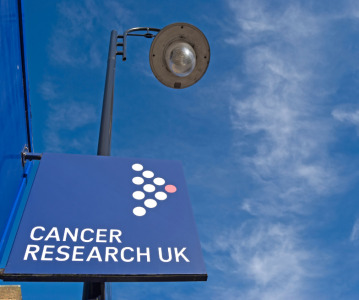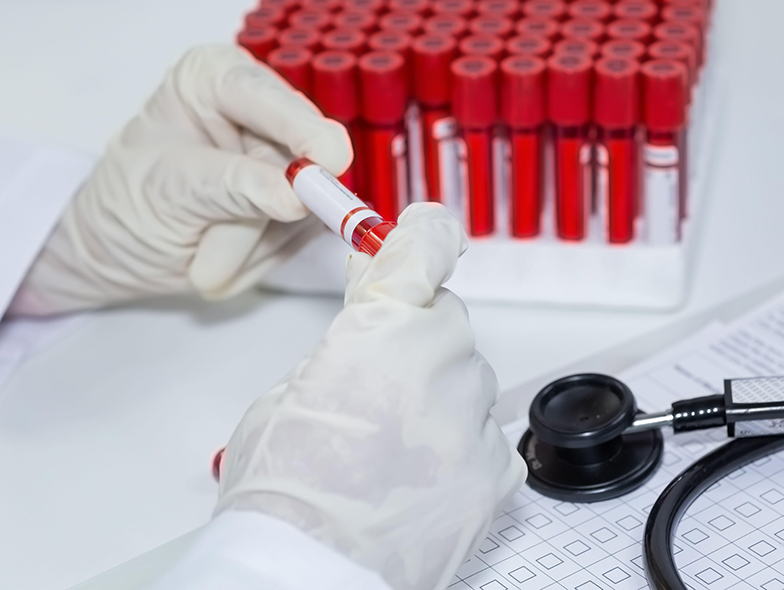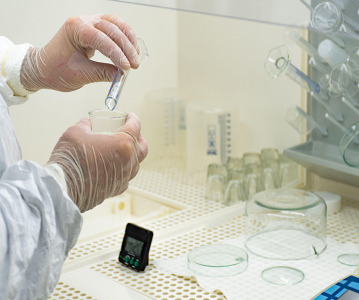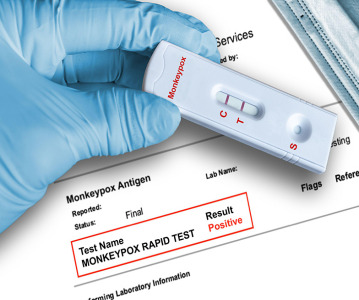Bi-bi breast cancer — new in vitro treatment study begins in oxford

Redesigned bi-specific antibodies may offer new hope against secondary breast cancer.
The charity Against Breast Cancer are funding a 4-year project at Oxford University to make new breast cancer treatments that stick to cancerous breast cells that have spread throughout the body.
Dr Weston Struwe of the Glycoprotein Therapeutics Laboratory will make and test novel antibodies for secondary spread that avoid damaging healthy cells whilst targeting the cancerous ones, no matter where they are in the body or how small the tumour.
Dr Struwe explains: “We hope to show that specific targeting of metastatic cells can be achieved by engineering antibodies to bind two different targets on a cancerous cell instead of only one, and demonstrate that these newly designed antibodies can be stably produced."
The new antibodies will ‘see’ 2 different molecules, both present only on the surface of cancerous cells which scientists hope will increase the likelihood of them sticking to the surface of secondary breast cancer cells, even if the target molecules are present at a low concentration on the cell surface. This will also reduce toxicity of the treatment as healthy cells that may display one of the target molecules, are ignored. As a treatment for secondary breast cancer, these antibodies may prevent growth or survival signals being received by the breast cancer cells, or mark them for destruction by the immune system.
Current antibody treatments, such as the HER2-binding antibody Herceptin, stick to cancerous cells that have lots of the target molecule present on the cell surface but miss cancerous cells that display fewer molecules. Antibody treatments may also stick to healthy cells with normal levels of the target molecule, such as heart cells that display HER2 which is involved in normal cell growth for repair of heart tissue and requires heart monitoring during Herceptin treatment.
Dr Nicola Winstone, Research Manager at Against Breast Cancer says: “If this project proves successful these antibodies will be assessed in future clinical trials and could provide a potent new treatment method for secondary breast cancer that may be applicable to other metastatic cancer types too.”
Related News
-
News CPHI Frankfurt 2022: Innovator Interview – DSM Biomedical
At CPHI Frankfurt we spoke to Anne-Cecile Bayne, Global Science & Innovation Lead Pharma and Medical Nutrition, and Marc Hendriks, Vice President Strategy & Business Development, on their expertise in nitrosamines and business strategy at DSM Biomedica... -
News New WHO health emergency guidelines expect full transparency from Big Pharma
The WHO are proposing a new set of pandemic guidelines to set out how future global health crises should be handled. -
News Magic mushrooms could be used to treat mental health conditions
A compound found in magic mushrooms, psilocybin, could be used to treat mental health conditions and help patients suffering with severe depression, as shown by the results of the largest study of its kind to date. -
News UK-based partnership to launch DETERMINE study into rare cancer research
UK-based CRO Quanticate is set to partner with Cancer Research UK for the launch of the DETERMINE study focused on testing a range of existing and approved drugs and therapies on rare cancers. -
News FDA approves Thermo Fisher blood tests for wheat and sesame allergies
Both tests have been approved by the US regulator for in vitro diagnostic use -
News QIAGEN launches world’s first syndromic test for monkeypox
The test can distinguish between monkeypox and other diseases that cause similar symptoms. -
News Monkeypox Update: Vaccine shortage, sewage surveillance and global testing
As concern over the monkeypox outbreak continues to rise, we take a look at major developments from the first week of August. -
News CPHI Podcast Series: The importance of novel excipients for innovative drug development
The latest episode in the CPHI Podcast Series dives into the world of novel excipients and explores their importance for innovative drug development.
Position your company at the heart of the global Pharma industry with a CPHI Online membership
-
Your products and solutions visible to thousands of visitors within the largest Pharma marketplace
-
Generate high-quality, engaged leads for your business, all year round
-
Promote your business as the industry’s thought-leader by hosting your reports, brochures and videos within your profile
-
Your company’s profile boosted at all participating CPHI events
-
An easy-to-use platform with a detailed dashboard showing your leads and performance


.png)




